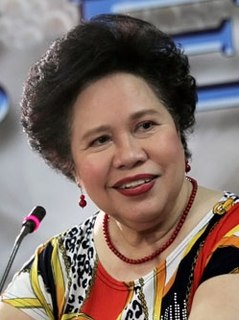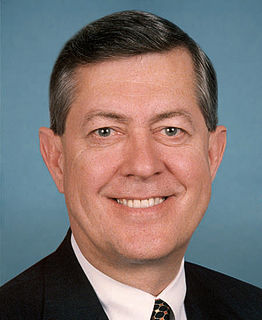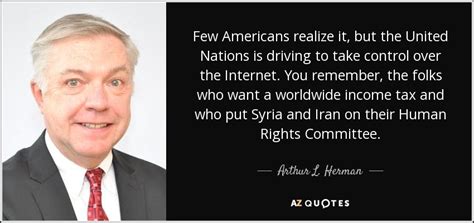A Quote by John Doolittle
If the U.N. were to be successful in its efforts to control the Internet, countries where human rights records range from questionable to criminal could be put in charge of determining what is and is not allowed to appear online.
Related Quotes
Experience has shown us that attempts to control the Internet will invariably fail. We should be instructed by the failed efforts of China to regulate political content, the efforts of America to regulate Internet gambling, or the efforts of Australia to regulate certain speech. By its very nature, the Internet will always resist such controls.
When countries with the worst possible human rights records sit on the UNHRC, seek to deflect attention from their own egregious human rights abuses and attempt to pass judgment on Israel - a country with a vibrant liberal democracy - the credibility of the UNHRC is further undermined, and the United States must not be silent.
Human rights are standards of behavior that are inherent in every human being. They are the core principles underpinning human interaction in society. These include liberty, due process or justice, and freedom of religious beliefs. I find little sympathy with efforts to try to equate Internet access with these higher, fundamental concepts.
Human rights and international criminal law both illustrate the contradictory potential of international law. On one level, the imposition of human rights norms is a restraint on interventionary diplomacy, especially if coupled with respect for the legal norm of self-determination. But on another level, the protection of human rights creates a pretext for intervention as given approval by the UN Security Council in the form of the R2P (responsibility to protect) norm, as used in the 2011 Libyan intervention. The same applies with international criminal accountability.
It is a great problem for the true international agenda of human rights that the United States, uniquely among industrialised countries, has not ratified three main instruments, has not ratified the Covenant on Economic, Social and Cultural Rights, or the Convention on the Rights of the Child, or the Convention for the Elimination of Discrimination Against Women, and we could have so much richer a debate and dialogue on international human rights standards if the superpower would sign up to the agenda.
I believe we should try to move away from the vocabulary and attitudes which shape the stereotyping of developed and developing country approaches to human rights issues. We are collective custodians of universal human rights standards, and any sense that we fall into camps of "accuser" and "accused" is absolutely corrosive of our joint purposes. The reality is that no group of countries has any grounds for complacency about its own human rights performance and no group of countries does itself justice by automatically slipping into the "victim" mode.
































